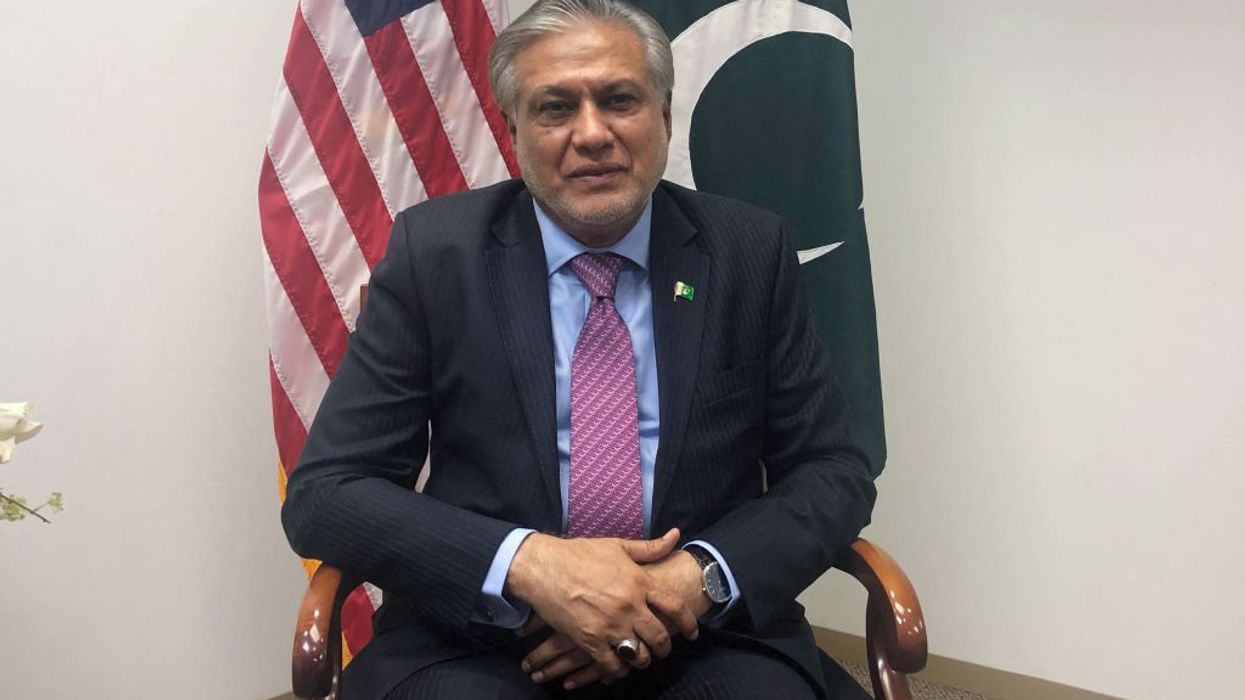Pakistan's finance minister Ishaq Dar said on Wednesday (11) that almost 90 per cent of pledges made by the international community for the flood-hit country were project loans that will be rolled out over the next three years.
His remarks came two days after the international community at a donors’ conference in Geneva pledged more than $10 billion to help the cash-strapped country rebuild in a climate-resilient manner after last year's ravaging floods.
Officials from some 40 countries as well as private donors and international financial institutions had gathered for the daylong meeting, co-hosted by Pakistan and the UN in Geneva on Monday (9).
There was confusion about the nature of monetary support and Dar had to clarify that $8.7bn of the pledges were loans. He did not reveal what the terms of these loans were.
Addressing a press conference, prime minister Shehbaz Sharif said the cash-strapped country "expects the terms to be lenient”, adding that the promised amount will be rolled out over the next three years.
The finance minister said that project loan financing had already crossed $8bn, including pledges by the Asian Development Bank, the Asian Infrastructure Investment Bank, and the World Bank.
"I am not incorporating the pledge made by the Saudi Development Bank on purpose here because it is not clear whether their announcement of $1bn pertains to programme lending or project loan,” Dar said.
Earlier, the prime minister at the start of the briefing, declaring the Geneva conference as a success, promised that money provided by the international community would be spent for the welfare of the flood-hit people.
The devastating floods in Pakistan last year killed 1,739 people and affected 33 million people.
Sharif said the Islamic Development Bank (ISDB) held a major share of $4.2bn of the total financial commitments, adding further that Saudi Arabia committed $1bn followed by China $100 million, Qatar $25m, Canada $18.6m, Denmark $3.8m, European Union $94m, France $409m, Germany $90m, Italy $25m, and Azerbaijan $2m.
"Every penny will be spent in a very transparent manner and a third-party audit will be conducted to ensure transparency,” he said.
He also praised Foreign Minister Bilawal Bhutto Zardari for his efforts in meeting foreign dignitaries and raising “the case of Pakistan effectively”.
In his address, Bilawal said the government achieved “two targets with a single shot” by getting help for the flood-affected people and dispelling a myth that Pakistan was isolated.
He added that the mission was not over as the condition of flood-hit people was dismal as scores of them were living under the open sky without basic necessities.
"We are striving harder to restore their lives to pre-flood time at the earliest,” he said.
Meanwhile, Dar also said that his team had a detailed meeting with the International Monetary Fund (IMF) team on the sidelines of the Geneva conference.
Though, the finance minister did not provide details of the parley but said the government would not burden the masses.
Pakistan is trying to convince the IMF to hold the 9th review of the $6bnn loans agreed upon in 2019 but the agency has delayed it as the cash-strapped country is not willing to fulfill certain conditions that would increase taxes.
The Geneva conference has increased confidence in Pakistan’s economy but its woes are not over as the reserves of the central bank have fallen to $4.5bn or equivalent to less than four weeks of imports.
Similarly, the key issue of controlling the prices of commodities is still unresolved.
(PTI)





